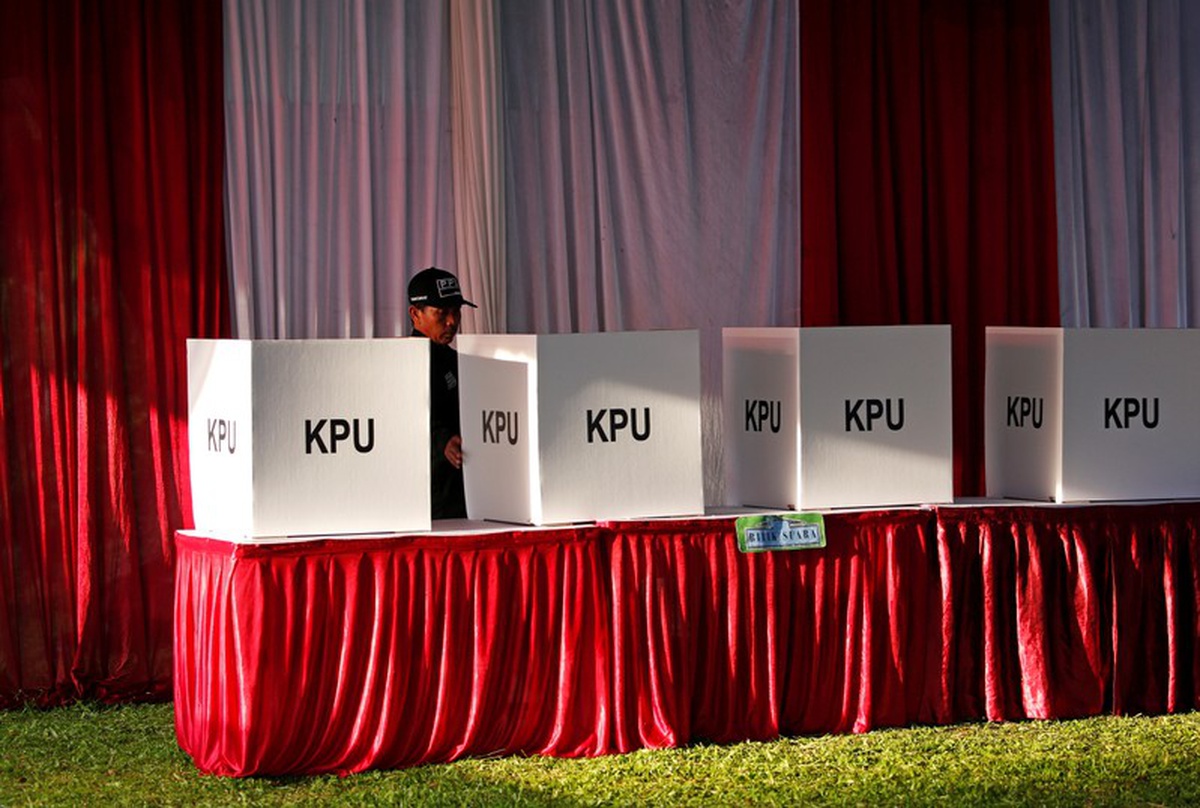Polls close in Indonesia, next President should be clear within hours
Wed 17 Apr 2019, 16:28:28

Polls closed in Indonesia on Wednesday in elections for President and parliament after a campaign across the sprawling equatorial archipelago that was dominated by economic issues but also marked by the growing influence of conservative Islam.
The eight-hour vote across a country that stretches more than 5,000 km from its western to eastern tips was both a Herculean logistical feat and testimony to the resilience of democracy two decades after authoritarianism was defeated.
President Joko Widodo, a furniture businessman who entered politics 14 years ago as a small-city mayor, is seeking re-election against former general Prabowo Subianto, whom he narrowly defeated in the last election, in 2014.
Most opinion polls give Mr. Widodo a double-digit lead, but the Opposition says the race is much closer and Mr. Prabowo, dressed in a white shirt and a traditional peci cap, said before voting in the city of Bogor he was optimistic about winning.
Mr. Widodo, dressed in a white shirt and accompanied by First Lady Iriana Widodo, voted in the capital.
“I feel relieved,” said Mr. Widodo, after casting his ballot and displaying a finger dipped in indelible ink, part of the process of avoiding fraudulent voting.
Polling stations opened at 7 a.m. (2200 GMT on Tuesday) in the east and closed at 1 p.m. (0600 GMT) in the west.
Unofficial “quick counts”, based on samples from polling stations, will be released two hours after voting ends. The winning presidential candidate could be known by late on Wednesday, though official results will not come until May.
Any disputes can be taken to the Constitutional Court where a nine-judge panel will have 14 days to rule on them.
Voting delays
More than 10,000 volunteers will crowd-source election results posted at polling stations in a real-time bid to thwart attempts at fraud.
However, the opposition has already alleged voter list irregularities that could affect millions and has vowed legal or ”people power” action if its concerns are ignored.
Mr. Widodos running mate, Muslim cleric Ma'ruf Amin, called a for a peaceful vote.
“The presidential
election is not a war, but a search for the best leader,” Kompas TV cited him as saying.
election is not a war, but a search for the best leader,” Kompas TV cited him as saying.
The election is being billed as the world's biggest single-day vote and is certainly one of the most complicated, with voters contending with five paper ballots for president, vice president, and national and regional legislative candidates.
Some voters in Jakarta clearly struggled with the process.
“The ballots with the photos on it were actually confusing. And the other one had a lot of names I didnt recognise,” said first-time voter Orlando Yudistira, 19.
In the easternmost province of Papua, voting in some areas was delayed until later this week after as many as 64 districts had not received “needed election logistics”, officials said.
Flash floods destroyed three polling stations, disrupting voting, on Sumatra island, media said.
Widodo win priced in
Widodo campaigned on his record of deregulation and improving infrastructure, calling his first term as step to tackling inequality and poverty in Southeast Asia's biggest economy.
Bread and butter issues were at the forefront of the minds of many voters.
“I hope in future prices of staple foods will be cheaper, especially as we are heading into Ramadan and Eid al-Fitr,” said Nurani, a 41-year-old mother of three, voting in Bandar Lampung in Sumatra.
But religion has also been a factor in the election in the world's most populous Muslim-majority country where conservatives have been increasingly influential.
Widodo, a moderate Muslim from Java island, had to burnish his Islamic credentials after smear campaigns and hoax stories accused him of being anti-Islam, a communist or too close to China, all politically damaging in Indonesia. He picked Islamic cleric Amin, 76, as his running mate.
Prabowo, a former special forces commander who has links to some hardline Islamist groups, and his running mate, business entrepreneur Sandiaga Uno, pledged to boost the economy by slashing taxes and cutting food prices.
An unexpected win for the challenger could trigger a brief sell-off in financial markets that have priced in a Widodo victory, analysts say.
No Comments For This Post, Be first to write a Comment.
Most viewed from International
Most viewed from World
AIMIM News
Latest Urdu News
Most Viewed
May 26, 2020
Do you think Canada-India relations will improve under New PM Mark Carney?
Latest Videos View All
Like Us
Home
About Us
Advertise With Us
All Polls
Epaper Archives
Privacy Policy
Contact Us
Download Etemaad App
© 2025 Etemaad Daily News, All Rights Reserved.

.jpg)
.jpg)
.jpg)






.jpg)


.jpg)
.jpg)
.jpg)
.jpg)
.jpg)
.jpg)
.jpg)
.jpg)
.jpg)
.jpg)
.jpg)
.jpg)

















